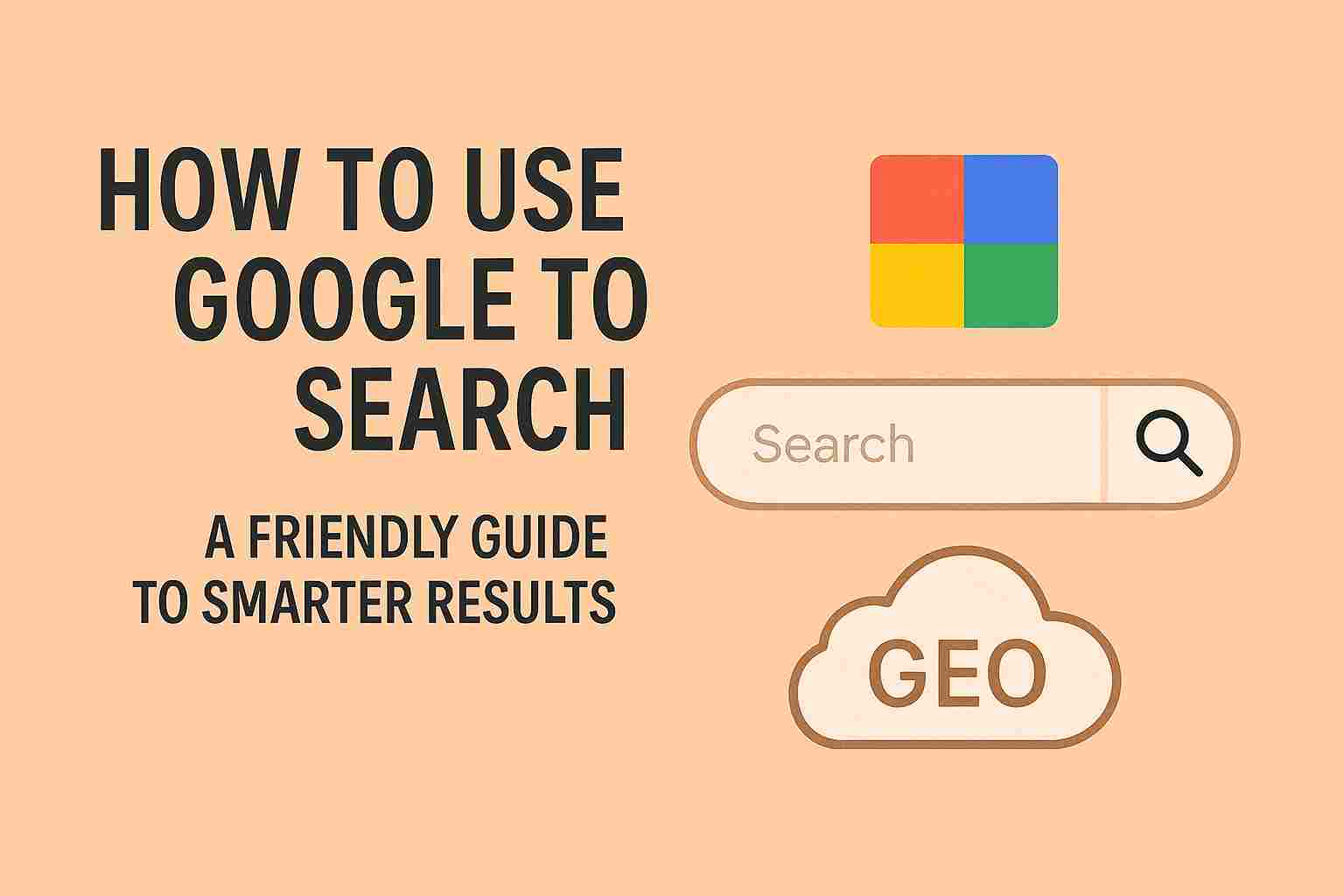Introduction
There are times when you enter some keywords in Google and wonder, “Why doesn’t Google show what I am really looking for?” For that matter, you want to keep company. Google remains the mightiest search engine on earth, but most people barely go past its surface. Do you consider yourself a student, a businessperson, or someone trying to find resolution for an argument at the dinner table? However, knowing how to search using Google efficiently will save you some time and keep you away from all the frustration.
This book will dissect for you small, smart ways that allow for good search results and the fun part is: You do not have to be a techy to achieve them!
Why does learning how to use Google search matter today?
Search has moved beyond the simple typing of a query and pressing the enter key. The Internet has billions of pages, all of which are accessed via Google. The better information reaches your doorstep at good speed because of refining on the queries, applying special sorts of operators, and knowledge of sorting algorithms. Priya Menon, a digital strategist said, “Search power isn’t about knowing everything; it’s about knowing how to ask.”
After all, having the right answers provided within the shortest time would make all the difference for a business, or even for a student, or for a drop-everything individual. Hence, it may be apt to put in some time for searching smarter.
What are the basics of using Google search?
At its simplest, using Google is about typing in keywords. But here’s the trick Google reads context, not just words. For example, searching “best pizza near me” will give different results than “pizza recipes.” Why? Because Google interprets intent.
Some quick basics:
- Put quotes around a phrase to search for the exact wording.
- Use a minus sign (-) to exclude terms, like apple -fruit if you only want Apple Inc. results.
- Combine words with OR if you’re okay with either, like vacation tips OR travel hacks.
These little tweaks can completely change the quality of your results.
How can advanced search techniques improve results?
Google isn’t just a search bar; it’s packed with advanced tools. Try these:
- Site search: site:itechmanthra.com SEO tips – shows results only from a specific site.
- File type search: AI marketing filetype:pdf – pulls only PDF files.
- Related search: related:nytimes.com – shows websites similar to a given domain.
These operators are especially useful for researchers, marketers, and anyone who needs to filter information quickly. It’s like having a backstage pass to Google’s hidden features.
For a deeper perspective on how content visibility is evolving, check out our blog on SEO beyond the website in the AI era.
How does search intent shape your results?
Google is all about intent what you really mean when you type something. A query like “best laptop under 50000” signals a buyer’s intent, while “how to clean laptop fan” shows troubleshooting intent. Google tailors results accordingly.
This is why businesses optimizing their content for user intent perform better in rankings. And for everyday users, understanding intent means you can phrase your searches to match the kind of results you want.
By the way, we’ve also shared insights on how to create content that works for search and generative engines a must-read if you’re curious about the future of search.
What role do filters and tools play in Google search?
Ever noticed the “Tools” button under Google’s search bar? Few people use it, but it’s a goldmine. You can filter results by time (past hour, day, week, year), which is crucial if you want the latest information. Similarly, Google Images, News, Maps, and Shopping tabs narrow down results to the right format instantly.
For example, a journalist might use the “Past 24 hours” filter to track breaking news, while a student can use Google Scholar to find research papers. These built-in tools are often overlooked but incredibly powerful.
How do you keep your searches safe and reliable?
The world of misinformation is vast, but Google can help verify information. People should be wary of reputable sites and use the “about this result” feature plus cross-reference the information with other reputed sources. Adding keywords such as official, statistics, and research will further filter out trustworthy answers.
According to Ramesh Patel, an SEO consultant, “The smartest searchers aren’t the fastest; they are the most skeptical.” It is never time wasted to double-check for accuracy.
FAQs
Q1: What’s the fastest way to refine a Google search?
Use quotes for exact matches or the minus sign to exclude words.
Q2: Is Google Advanced Search free?
Yes, it’s completely free and accessible to anyone.
Q3: How can I find only recent information on Google?
Use the Tools filter and choose results from the past hour, day, or week.
Q4: Can I use Google search on mobile with the same tricks?
Absolutely, the same operators and filters work on mobile too.
Q5: Do businesses benefit from advanced Google search?
Yes using filters and operators helps with competitor analysis, keyword research, and trend tracking.
Conclusion
It is akin to using Google for doing an effective search. Having the sports car means that the person exerts absolutely little-to-no effort to get to the destination. These little steps-operators, intent, and filtering-can create a huge difference in how we interact with information online.
